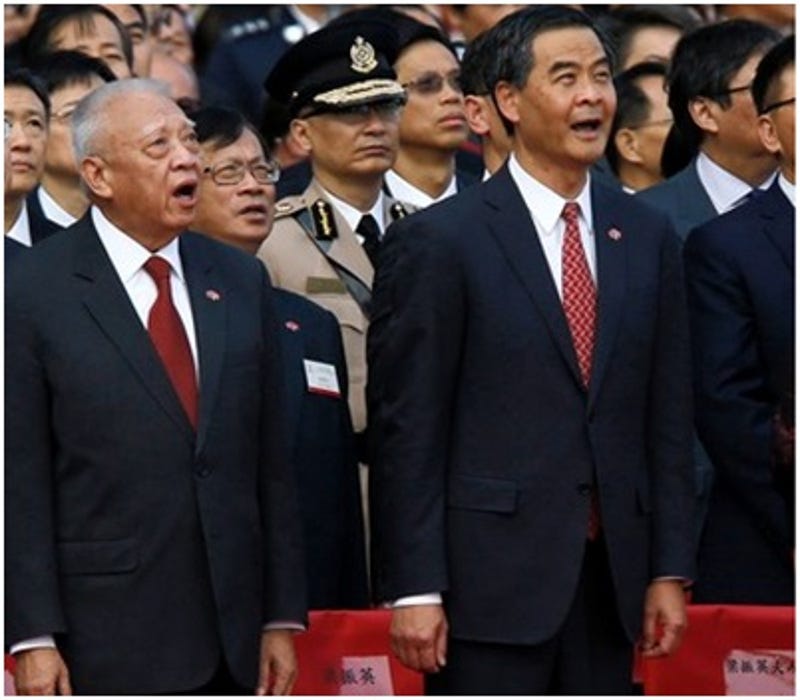Beijing Seeks New Formula to Try to Mollify Hong Kong
Former chief executives seek to rally demoralized pro-Beijing forces

After furious caterwauling last week by the Hong Kong & Macao Affairs and Liaison Offices over their right to boss the Hong Kong Special Administrative Region, CH Tung and CY Leung (above, singing patriotically), both failed former one-term Hong Kong chief executives, birthed another patriotic front – Unite Hong Kong – to “solve pressing problems” as Ge…
Keep reading with a 7-day free trial
Subscribe to Asia Sentinel to keep reading this post and get 7 days of free access to the full post archives.
